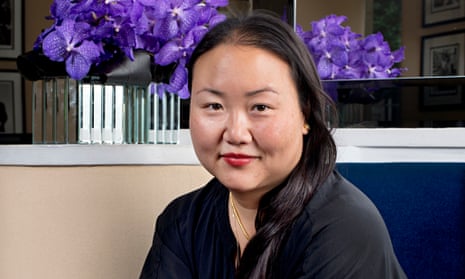Right: first things first. No Franzen, no Rushdie, no Atwood. No wolves (Sarah Hall) or aliens (Michel Faber) or, for that matter, dragons (Kazuo Ishiguro). Now let’s move on: absentees preoccupy those who watch prize lists far more than those who make them, who need to silence the noise of industry hype, review coverage or previous renown. This year, the second in which the Man Booker prize has been open to American writers, the judges have certainly done that; after all, Harper Lee wasn’t on Wednesday’s longlist and a few weeks ago you’d have been forgiven for thinking no other book had ever been published (except for Grey, a few weeks before that).
This is a diverse and daring list, rich in the unknown quantities that thrill compulsive readers on the lookout for a new fix. Among its 13 novels – the “Booker dozen” – are Hanya Yanagihara’s A Little Life, a 734-page exploration of the effects of childhood sexual abuse that has, according to American reviewers and last Sunday’s Observer New Review interview, left its readers simultaneously transfixed and devastated; Sunjeev Sahota’s The Year of the Runaways, which depicts the hidden lives of migrant workers in Sheffield; Satin Island by Tom McCarthy, a dizzyingly complex mash-up of anthropology and corporate culture; and Marlon James’s A Brief History of Seven Killings, the first book by a Jamaican writer to appear on the prize’s longlist, which takes as its starting point the attempted assassination of Bob Marley.
There are more established names, too – Anne Tyler, Marilynne Robinson, Andrew O’Hagan and Anne Enright – but none of these writers could count as “safe” choices. In each case, they seem to be interested in disrupting expectations, messing up their narratives a little: even Anne Tyler, whose novel A Spool of Blue Thread takes place in her traditional Baltimore setting and customary family set-up, inverts a linear narrative and plays fast and loose with her central characters’ fates and (big deal, this, in the modern world) likability.
Opinions differ, often sharply, on how much responsibility a prize jury bears for the breadth of its choices. My feeling is that to over-focus on a prize longlist, shortlist and eventual winner is to look in the wrong place. Panel members have a duty to think seriously about the limitations of their personal taste, of the literary traditions and voices they have grown up with; and if they’re not actively well disposed towards the new and unfamiliar, they shouldn’t be doing the job. But the real work of increasing the range of voices on offer starts a lot earlier, in the offices of agents, publishers, creative writing tutors and literary festival organisers.
My opening caveat about absentees notwithstanding, the book I’m saddest not to see here is Ishiguro’s The Buried Giant, a phenomenally serious and risk-taking piece of work that kickstarted an important conversation about what literature could be, if only we’d chuck the reductive labels out. Thankfully, its author is unlikely to be deterred. That aside, my money’s tentatively on Yanagihara.

Comments (…)
Sign in or create your Guardian account to join the discussion